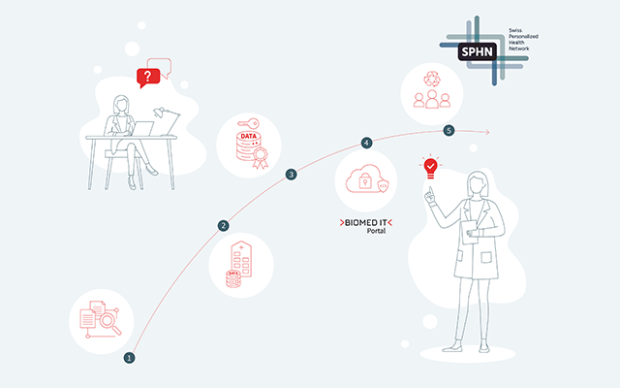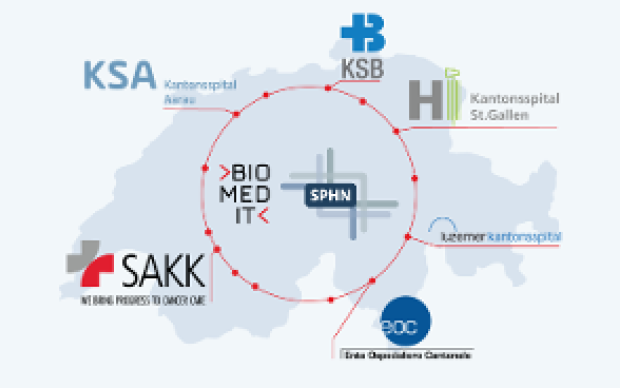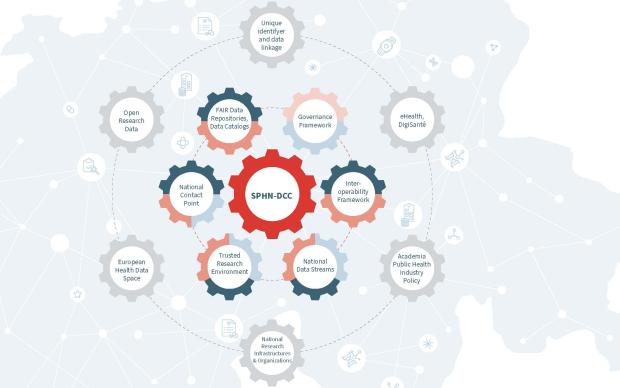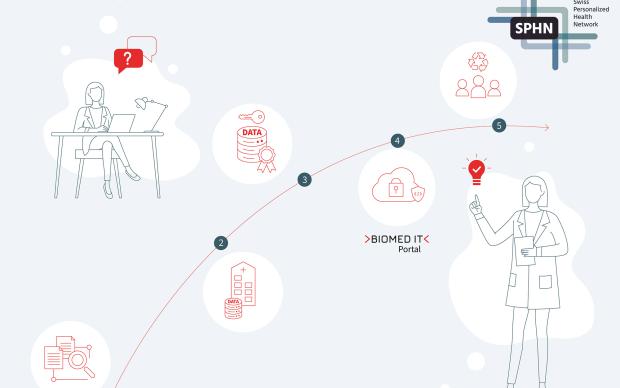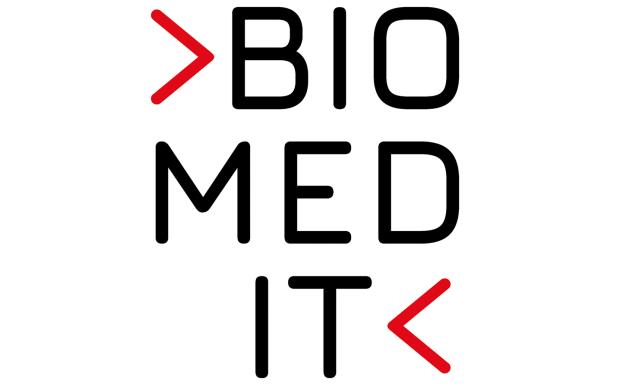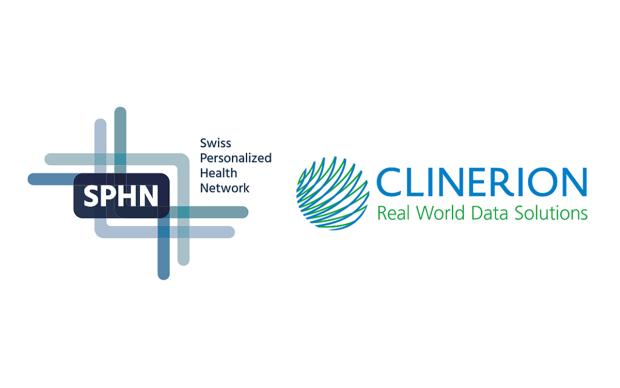Today, we present an overview of the BioMedIT project, coordinated by SIB’s Personalized Health Informatics Group, as the first of a series of articles on SIB’s role in the development of a personalized health research infrastructure in Switzerland.
Introducing the series “Setting up a national infrastructure to enable biomedical data exchange”
The prospects of personalized health in Switzerland, enabled by SPHN, have already been the subject of much attention both in the mass media and in the specialist press; much less has been said about the backstage activities that will enable personalized health to take-off - in other words, the creation of the country’s secure IT and common language infrastructure to make patient data shareable for research purposes.
SIB is in charge of these aspects, namely the BioMedIT project and Data Coordination Centre, and in this series we will offer perspectives from the various actors involved: researchers, core facilities and hospitals.
BioMedIT in a nutshell
The ability of life scientists to advance our knowledge of diseases and to identify novel and personalized therapies hinges on their access to large amounts of high-quality patient data. However such data is associated with stringent levels of protection and information security, which impose high requirements on the underlying information technology infrastructures, processes and expertise.
BioMedIT will establish a coordinated nationwide network of secure infrastructures (the ‘nodes’) to support biomedical research, by building on existing expertise and research infrastructure at the partner institutions. BioMedIT will thus provide the researchers with a secure high-performance computing environment – and the accompanying technical expertise – to leverage knowledge from patient data.
At this stage, three BioMedIT nodes are being set-up, in Basel (operated by the University of Basel’s sciCORE Group), Lausanne (operated by SIB) and Zurich (operated by ETH Zurich’s SIS Group). The nodes operate under the same “SPHN information security policy”, and are coordinated by SIB’s Personalized Health Informatics (PHI) Group.
Why is SIB leading this project?
The SIB Swiss Institute of Bioinformatics has been mandated by the Swiss Government to lead the Data Coordination Center of the SPHN initiative as well as the BioMedIT project because of its unique position as a non-profit, nation-wide foundation with no interest other than the advancement of life science and health. Thanks to 20 years of experience in research infrastructure, its involvement as Data Coordination Centre for several public-private Europe-wide health projects and its established partnerships with university hospitals for clinical bioinformatics activities, SIB is indeed well positioned to bridge the gap between research and the clinical world.
How will it work? Some context and legal framework
The “Ethical framework for responsible data processing in personalized health research of the Swiss Personalized Health Network (SPHN)” provides ethical guidance in relation to personal data processing within the SPHN, with particular emphasis on guidance for data sharing.
Typically, prior to any data being transferred, a research project using sensitive human data requires: the informed consent from the patient that her/his data can be used for research; approval of the research project by an ethics committee; and a “Data Transfer and Use Agreement” with the Swiss hospitals providing the data.
Once these conditions are fulfilled, data will be de-identified, encoded and encrypted for the transfer to the researcher's account on a BioMedIT node. Finally, BioMedIT will provide authorized project members with an access to a secure computing environment in which to conduct their data analysis, anywhere in Switzerland.
Where are we today?
The first successful steps towards a coordinated encryption/decryption workflow were made in September 2018. They included a computational analysis workflow in the form of a container to demonstrate the feasibility of robust, distributed data analysis across the BioMedIT network.
An “SPHN information security policy” clarifying the roles and responsibilities of the various parties was also rolled out in September, and a Security Awareness training workshop was held in Zurich at the end of last year.
Today, the high-performance computing infrastructure (including both storage and computing) dedicated to BioMedIT is already operational in Zurich. It is currently being deployed in Basel, and will follow in Lausanne in the coming months.
Martin Fox, BioMedIT Project Manager at SIB’s Personalized Health Informatics Group: “Not all BioMedIT nodes evolve at the same pace, each location having its own technical constraints. While it is one thing to have the individual nodes ready to operate and welcoming users, it is another to have the full network interoperable and securely connected to the hospital data warehouses. I am confident that by the end of 2019 we will have three BioMedIT nodes on line, and the frameworks in place to efficiently process data for personalized health research”.
How does BioMedIT interface with SPHN?
The interface between the project and the SPHN initiative is done through SIB’s Personalized Health Informatics Group, which manages both BioMedIT and SPHN’s Data Coordination Centre (DCC).
SPHN lays the foundations to facilitate research projects in personalized health, such as ethical, legal and technical frameworks to organize the data exchange. It is supervised by the Swiss Academy of Medical Sciences (SAMS). The initiative also allocates funding to projects designed to develop or implement infrastructure, as well as research projects pushing the development of clinical data management systems.
The DCC manages the implementation of nationwide standards for data semantics and exchange mechanisms in order to meet the interoperability goals of the initiative. It guides the infrastructure developments according to the scientific needs of the abovementioned personalized health research projects making use of clinical data.






